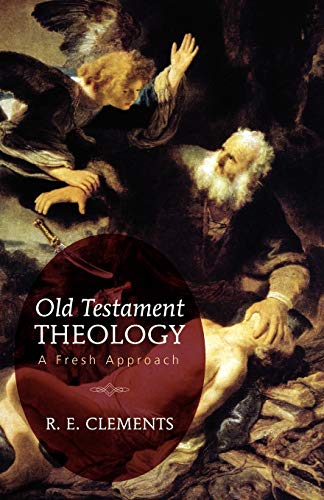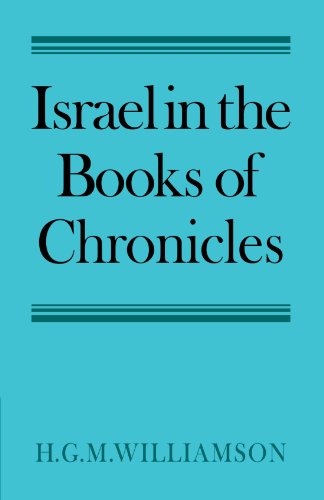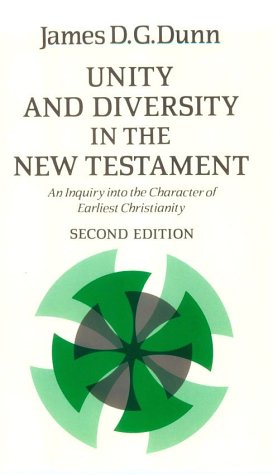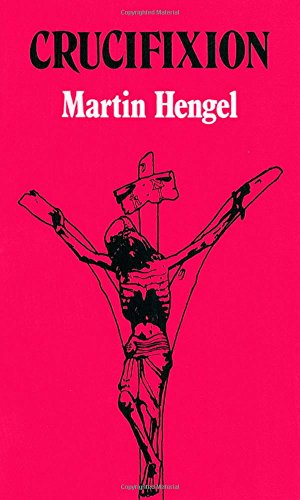Old Testament Theology: A Fresh Approach
Written by R. E. Clements Reviewed By Gordon McConvilleThis is the first in a series of titles called Marshall’s Theological Library under the general editorship of Peter Toon. The aim of the series is to cover various areas of Christian theology, and show its contemporary relevance.
It is no easy matter to write an Old Testament Theology to such a brief. The subject is huge, and there is no generally accepted way of going about it. The author has no doubt been well advised to describe his shortish book as an ‘approach’ to OT Theology.
About half of the book, the first two and last two of its eight chapters, are devoted to questions of method. This is probably its most important contribution. One of the central problems in OT Theology is that, while theology strains to be systematic, the OT is a historical literature, diverse in form and anything but systematized. For this reason attempts to do it have tended to polarize into those which are mainly descriptive history (e.g. v.Rad), and those which are akin to systematic theology (e.g. Eichrodt). Clements comes to what looks like a plausible compromise, treating the major themes of the OT with as much system as possible, given the limitations imposed by the OT’s nature (p. 32). That is, themes will be studied in their diversity and progressive development. But ultimately, says the author, there is a unity in the Old Testament, established by the nature and being of God himself (p. 23).
The other great difficulty in OT theology is the fact that the OT is primarily the body of religious literature belonging to a community which no longer exists and therefore, to which the modern reader does not belong. The specific problem for the Christian is how to do OT theology in a way consistent with the whole biblical revelation and his confessional stance. Clements believes that his task is to be done within a Christian confessional framework. He wants to take account of what the church down the ages has said about the OT. He believes the two testaments should be seen together, and that the NT’s interpretation of the old will enter into a truly biblical theology. The task of theology, he believes, is to serve religion (p. ix).
The programme which the author has thus presented seems unimpeachable. But certain aspects of the actual treatment of the problems outlined above cause this reviewer to have certain reservations. First, the author’s hesitation about proceeding systematically seems to arise not only from the fact that the OT contains a good deal of history, but also from a conviction that its material is disunited in character. And sometimes this conviction results in superficial exegesis. The case of Jehu’s extirpation of Ahab’s house (2 Kg. 9:1–37) is cited as an example of internal disharmony. In the Kings account Jehu is instructed by God to destroy the royal house. Yet in Hosea 1:4–5, it seems that he is to be punished for it. There is a difficulty here, no doubt. Yet on reflection, there may be a certain analogy with the role of Assyria in the prophecies of Isaiah—the rod of God’s anger against Israel, yet liable to punishment herself because of her own selfish motivation (Is. 10:5–14).
Secondly, it is not entirely clear what the author means when he writes of the necessity of doing OT theology through the eyes of the community of faith. This is so because of his belief that one major fruit of the study of OT theology should be a deepened understanding among the three great faiths which share the OT, i.e. Judaism and Islam alongside Christianity. In particular Clements wants to take account not only of what the church down the ages has said about the OT, but also of what Judaism has said. In this way the broadest possible understanding of the OT will be achieved, the task will become an ecumenical endeavour, and for these reasons it will receive its greatest justification as an intellectual discipline. This seems to beg the most fundamental questions about a Christian motivation for doing OT theology. It must lead to a questioning of the unity of the testaments, and jeopardize the authority of the Bible. Clements in fact rejects the dictum of E. Jacob that it is not possible to speak of a theology of the OT unless it is based upon the principle of the unity of the two Testaments (p. 176: E. Jacob, Theology of the OT 12f.). He goes on to say that, while a Christian should approach the OT ‘with a clear consciousness of his commitment to Christ as (its) “goal” …,’ nonetheless that commitment should be examined critically, in the awareness that there are other ways of tracing the unity of the Bible than that which the NT alone employs. The unity of the OT can look very different through Jewish eyes (p. 176). The principle is extended to Islam, which in its understanding of the prophetic office has preserved an aspect of the OT which neither Christianity nor Judaism has been able to do (p. 178).
It seems to me that this view of OT study as a bridge-building enterprise spanning Christianity, Judaism and Islam does too little justice to the effect of Christ upon Christian theology. It is undeniable that insights about the OT can come from anyone, whatever his religion. But ultimately, for the Christian, the person and teaching of Christ must be determinative for his reading of the OT, and constitutive of a ‘Christian’ unity of the Bible. It should not be suggested that Islam has somehow scored a point off Christianity by maintaining the prophetic office, when it is essential to Christian theology that Christ has fulfilled prophecy, and become the Prophet sans pareil. The approach the author has taken is in reality too detached; certainly it is not consistently undertaken from a Christian standpoint. At times indeed, the study seems to be that of the phenomenon of religion in its widest sense, made by the interested onlooker (cf. p. 194).
With regard to actual treatment of OT themes, the four central chapters of the book deal with the subjects, the God of Israel, the People of God, the OT as law, and the OT as Promise. Space has kept the remarks generalized, but I found a good deal that was helpful, particularly in chs. 4 and 5. Ch. 4, The People of God, is useful on the question of the definition of Israel, and the themes of election and covenant; and Ch. 5 on the meaning of Torah. As with all the author’s work, the reader feels that an immense amount of knowledge and learning underlies all that he says, and the careful user of the bibliography—designed to be useful rather than intimidating—will find much stimulus to further reading. My chief criticism here would be that critical opinions are often presented with too little argument. This is true e.g. of his assertion that covenant ideas entered the OT only with the Deuteronomic movement (for him, the 7th century p. 100) and of his belief that the hopeful elements in prophecy were only a later development (140–144); the latter opinion is not only exegetically but also theologically inadequate.
A final observation should be made about the place of the cult in the author’s thinking about the OT. In his own words, the cult ‘… has formed the cradle of biblical theology’ (p. 42). He is not the first to think this. V.Rad took a similar view. But several things have to be said. First, it is not the biblical pattern. In the Pentateuch, law precedes cult. Clements reverses that order; law emerges from cult. Secondly, not all the OT literature can be easily traced to cultic origins in any case. This may be why Clements, like von Rad, has found no place for the wisdom literature in his theology. And some scholars nowadays are even postulating non-cultic origins for some psalms. But the third and final point is most important. It becomes impossible, on this view, to trace anything in the OT back further than the cult. In other words when the OT says ‘God said’, the words can only be traced to a priest in the cult. He gives Exodus 20:2 as an example (p. 55). But can we never know, then, whether God has really spoken? Or are we in the end, far from affirming what has been revealed to us, merely describing what Israel believed? The author, I believe, would not want to say that this is so. But it might well be the logical conclusion of his method.
I would recommend this book for students to read. It is highly informative about the field of OT theology. But it should be read with discernment.
Gordon McConville
Cheltenham and Gloucester College of Higher Education






